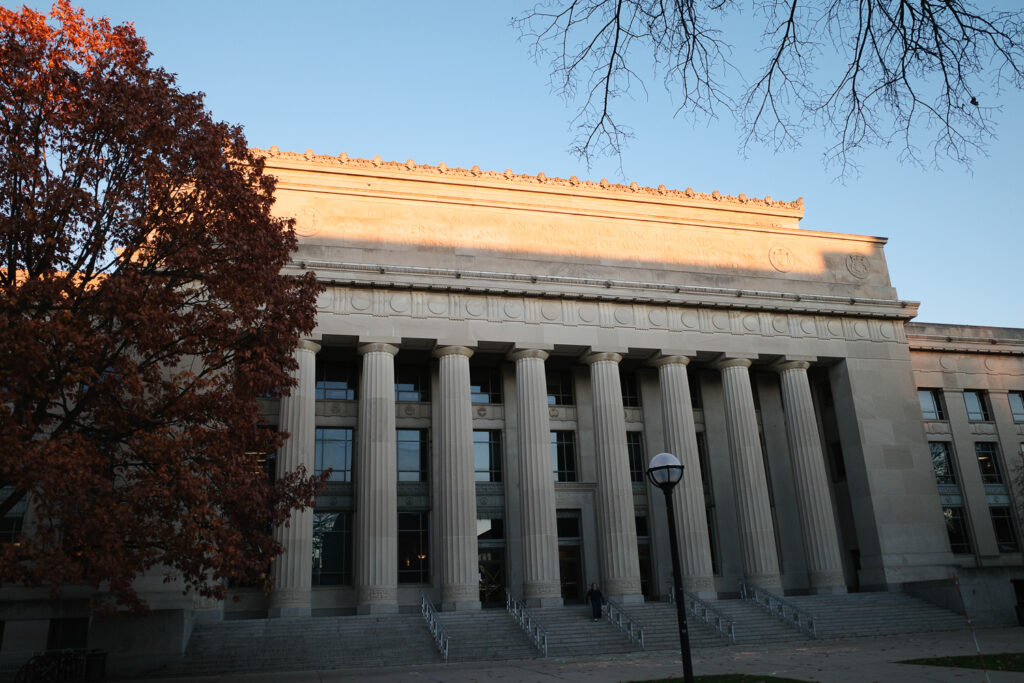Have you felt it? There’s been an undeniable political vibe shift in Michigan over the past month or so, even in Ann Arbor.
The University of Michigan announced last week that it will no longer use diversity statements in its hiring, tenure, or promotion decisions. The policy change follows a review by a working faculty group that found the school was putting “pressure on faculty to express specific positions on moral, political or social issues.”
Diversity statements “serve as a ‘litmus test’ of whether a faculty member’s views are politically acceptable,” the working group concluded in its report. “Thus, as currently enacted, diversity statements have the potential to limit viewpoints and reduce diversity of thought among faculty members.”
Even so, the faculty group clearly was reluctant to swear off the Left’s noxious DEI racket altogether. To compensate for no longer requiring faculty members to swear their allegiance to this agenda, the working group recommended U-M incorporate even more DEI content into faculty members’ teaching and research.
Notably, the university did not adopt this recommendation.
Perhaps school officials already hear President-elect Donald Trump’s footsteps around the corner. At the very least, they’ve heard his pledge to investigate and even defund public universities that promote “race and sex stereotyping and scapegoating.”
U-M isn’t the first big university to do away with some elements of its DEI agenda, but it is perhaps the school with the most to lose—and the most to change.
The university began to roll out its DEI agenda nearly a decade ago and has since invested nearly a quarter of a billion dollars into it. This agenda includes more than 241 full-time administrators, staffers, and graduate students associated with its Office of Diversity, Equity, and Inclusion. According to a 2021 report by the Heritage Foundation, the “total number of DEI personnel at the [university] is more than double the number of history professors and more than 14 times the number of personnel tasked with providing services to students with disabilities—a service that is required by federal law.”
And yet, the school has little to show for its efforts, other than increased dissatisfaction among faculty and students alike. A recent New York Times report found that students from all sorts of ethnic backgrounds dismissed the school’s DEI commitments as little more than a joke: “Where some found [DEI] shallow, others found it stifling. They rolled their eyes at the profusion of course offerings that revolve around identity and oppression, the DEI-themed emails they frequently received but rarely read,” wrote investigative reporter Nicholas Confessore.
This was a critical point for the university, says Sarah Hubbard, a U-M regent. “DEI programs should be having the intended effect,” she told Michigan Enjoyer. In the case of diversity statements, it is clear the school’s policy has actually decreased ideological diversity and negatively affected inclusion on campus.
“In part, we think that diversity statements are a thing that curtail free speech and academic freedom amongst our faculty, because they basically require a certain way of thinking,” Hubbard explained.
U-M’s Board of Regents also adopted a policy of institutional neutrality this month, which prevents university officials from making public statements on political or social issues “unrelated to the university,” Hubbard said.
These are just the “first steps,” as Hubbard put it, in what inevitably will be a long and difficult battle to break up the DEI kingdom. Next on the agenda is tackling administrative bloat.
“Internal DEI programs result in angst among our faculty and staff, lots of duplicative report writing, things that they don’t think add value to their jobs,” Hubbard said. “We’ll be taking a critical look at all of our programs and dealing with them moving forward.”
Hubbard hinted some bigger cuts might come next spring when the university draws up its next budget.
And she doesn’t expect these changes to stop in Ann Arbor.
“When we take action, other schools watch closely—and not just on this issue,” she said. “We hope this will send a signal to other universities that they also need to look at their programs—that they’re achieving the goals they’re hoping to achieve, not just adding more bureaucracy and more burdensome paperwork.”
Let’s hope Hubbard’s right. There’s a school over in East Lansing that could use a thorough gutting as well.
Kaylee McGhee White is editor-in-chief of Independent Women Features, a Steamboat Institute media fellow, and a columnist for Michigan Enjoyer. Follow her on X @KayleeDMcGhee.




